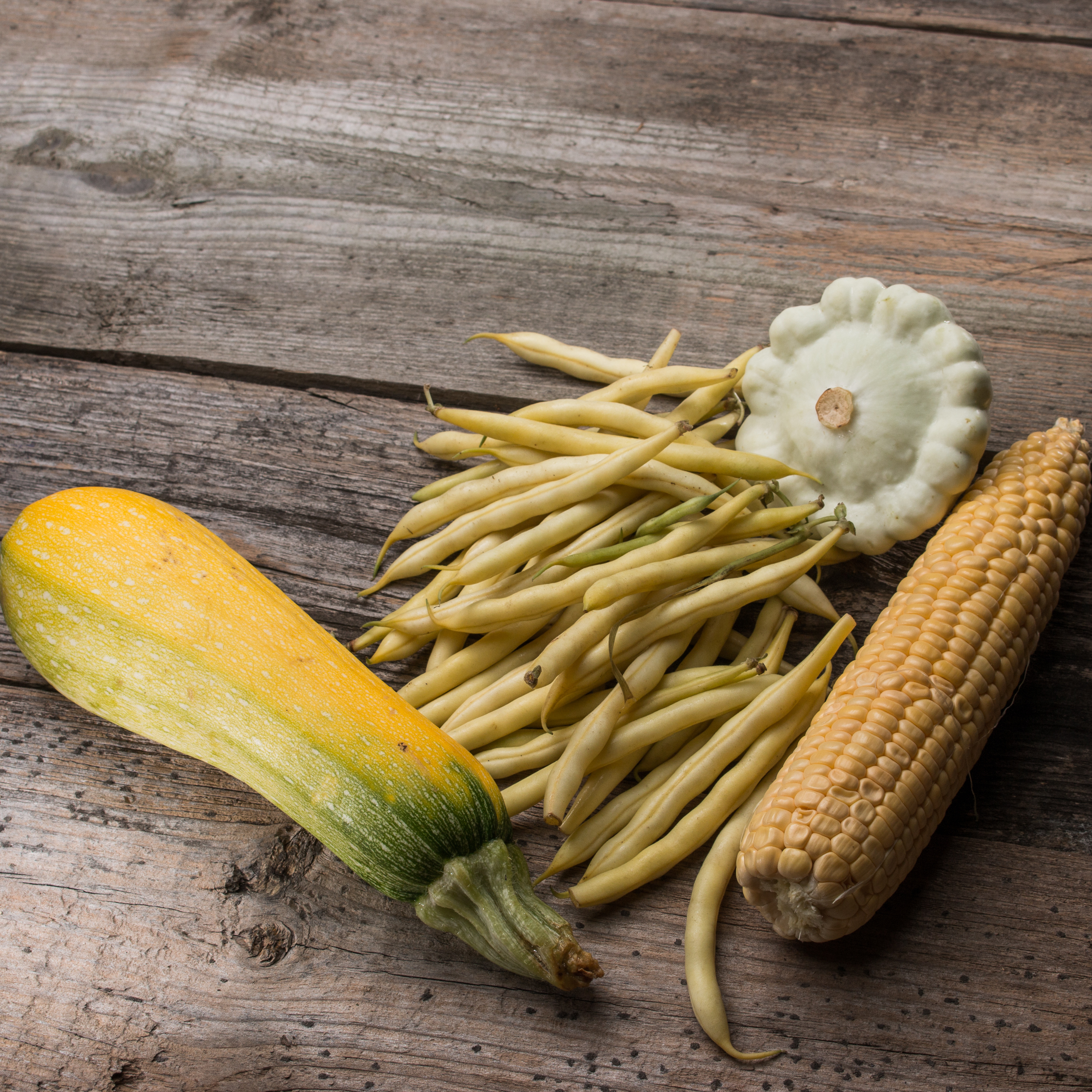GardenZeus Zone 12: 'The Three Sisters' Companion Planting in Southern California's Warm Inland Valleys

The Three Sisters is a traditional Native American agricultural grouping that includes corn, beans, and squash, with corn providing a natural trellis for beans and vining squash, beans fixing soil nitrogen theoretically to the benefit of all three crops, and squash providing a living mulch with large leaves that cool the soil and discourage weeds.
The Three Sisters can be tricky in Southern California’s warm inland valleys. Beans are grown from later winter or spring through early summer, and from early fall to early winter, while corn and squash are grown spring through summer. Beans need cool-to-moderate temperatures with minimal to no frost, and suffer in late-spring and summer heat in your zone; while corn needs warm nights and is tolerant of summer heat. Most squash varieties fall somewhere in between; they like cool weather with days as low as 60°F but tolerate heat. Corn is usually started too late in your zone to provide natural trellising for beans.
Zucchini and other summer squash seed varieties sold in the United States generally are not vining plants, and rarely grow in a spreading form with the long vines that are common with winter squash. Many varieties of summer squash, particularly zucchini, produce dense, bushy, compact plants that may simply crowd out bean plants or even corn.
With the vigorous growth, long vines, and sprawling habit of many winter-squash and pumpkin varieties, smaller nearby plants may simply be overwhelmed, covered, and starved as a result of blocked sunlight. As a general rule, GardenZeus expert Darren Butler recommends against interplanting, period, for larger vining varieties of winter squash and pumpkins. For purposes of The Three Sisters, these varieties should only be planted with very tall or giant varieties of corn.
Beans and other nitrogen-fixing legumes use most of the nitrogen they fix, so unless you cut bean plants at soil level before harvest, there may be little nitrogen benefit to corn and squash. Soil nitrogen fixed by beans may be available only to crops that are planted afterward, not for current companions. Legumes will normally be harvested or worn out by heat while squash and corn are still productive in your zone.